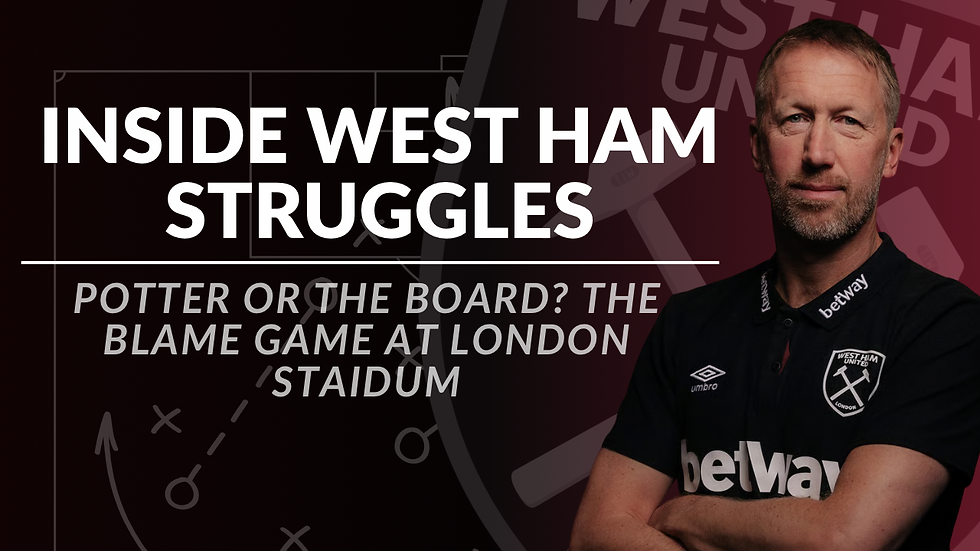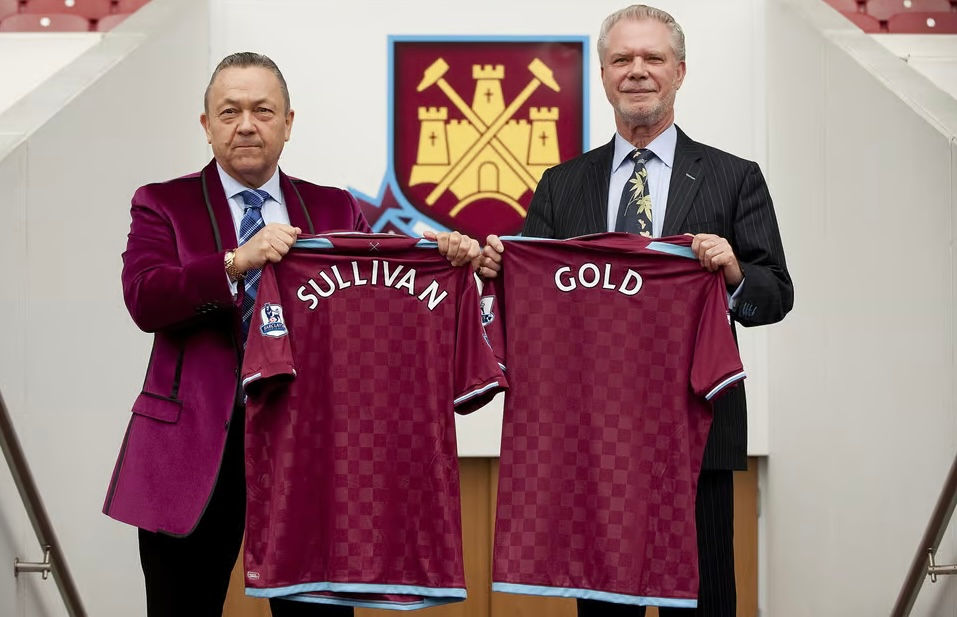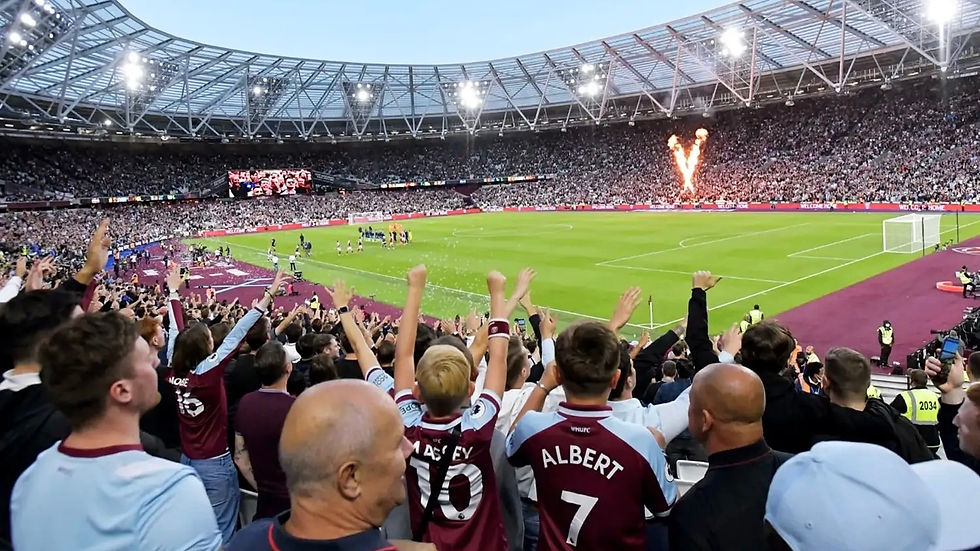Graham Potter or the Board: Who’s Really to Blame for West Ham’s Struggles?
- Jack Sykes
- Sep 20, 2025
- 3 min read

With their third defeat in just four games this season, West Ham are currently placed 18th in the league with the worst home record out of all 20 clubs. They are yet to pick up a point at the London Stadium and have conceded eight goals while scoring only once. Since taking charge in January, Potter has overseen just six wins in 24 games. But is Potter truly failing, or is he being let down by those above him?
Potter’s Struggles Are Clear to See
West Ham’s current form does not reflect the club’s vision. For a side with ambitions of challenging the top six, performances must improve especially at home, where they haven’t won since a 2-0 victory over Leicester City in February.
Set pieces have been a disaster for the Hammers, highlighted in their recent 3-0 loss to rivals Spurs. Tottenham exploited their defence with ease, scoring twice from corners. Potter himself admitted that the team had “defended nine or ten set pieces really well before their goal”; however, he added that Spurs’ opener came from “a mistake at the back post,” which “shows the margin at this level.”

As the poor displays continue, frustration among fans is growing, and so is criticism from pundits. Former West Ham boss Alan Pardew labelled the side as “flat,” while noting that despite spending over £100m in the summer, their recruitment has been underwhelming. Time is running out for Potter, and he must turn results around soon.
Do the Board’s Mistakes Run Far Deeper?

In 2010, David Gold, David Sullivan, and Karen Brady completed the takeover of West Ham United. They arrived with a promise to steady the finances, professionalise operations, and move into a stadium that would cement the club’s status as a Premier League outfit. By 2016, the owners sold a vision to fans of leaving Upton Park for the London Stadium, promising a global profile, a “world-class team,” and long-term growth.
Nine years on, many supporters believe West Ham have lost their identity after leaving Upton Park.

A recent Fan Banter study found that, out of 8,000 West Ham fans, 95% said the atmosphere was worse than at Upton Park, with 71% rating the London Stadium’s atmosphere as “poor” or “very poor.” Furthermore, 85% blamed the stadium’s layout. Built originally for athletics, the large track around the pitch creates a “bowl” effect, keeping fans far from the action. The result is a flat matchday atmosphere that feels impossible to unify. Could this explain why West Ham continue to struggle at home?
The owners also promised a world-class squad alongside the new stadium. Instead, West Ham face an ageing and uncompetitive side. Despite the high of winning the Europa Conference League in 2023 their first major trophy since 1980 fans have been left disillusioned. The inability to keep key players such as Declan Rice, Mohammed Kudus, and Dimitri Payet has fuelled anger, and trust in the ownership has collapsed.
A Cycle That Managers Cannot Escape?
When a manager joins a club, they are sold the vision of ambition. At West Ham, however, that vision has consistently unravelled.

There may be moments of success like Moyes delivering the Conference League but every manager has ultimately been undermined by poor recruitment and short-term planning.
Potter now finds himself caught in the same cycle, sitting on the brink of dismissal and widely tipped as the favourite to be the next Premier League manager sacked.

Until the West Ham board delivers a long-term vision that reconnects fans with the club and backs managers with smarter recruitment to finally build a world-class squad, no manager will be able to keep West Ham competing consistently for European football.






Comments